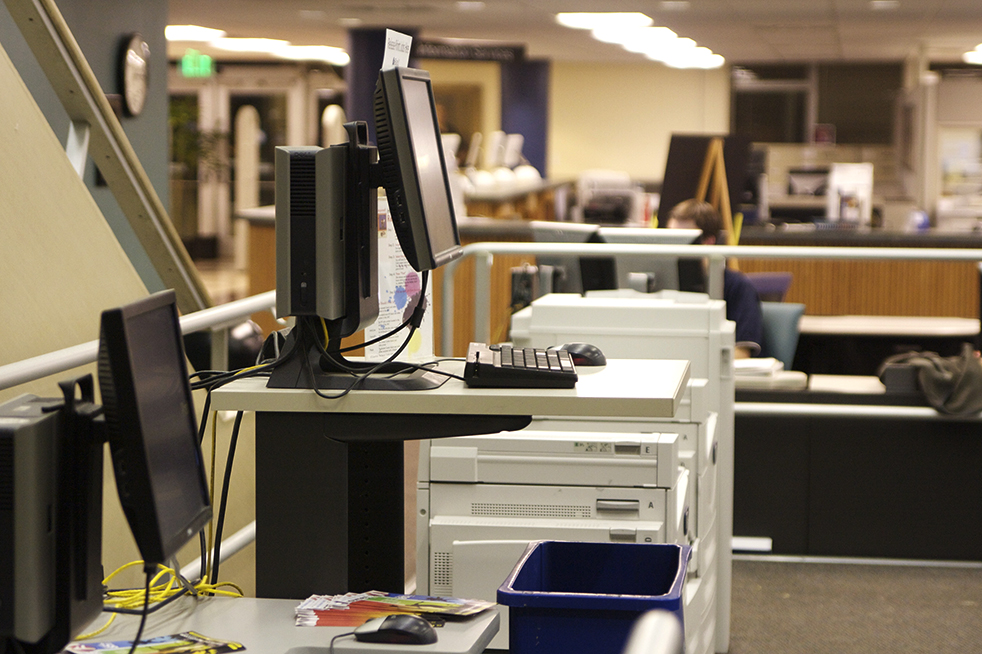On Jan. 1, 2014, OIT-PS, which handles the service of mass printing, in collaboration with the Student Government Association (SGA) made the decision to limit the amount of printing on the central-ps to 1,200 pages. They also expanded the existing free allocation on printing for departmental areas, such as the computer clusters. These decisions were made based on printing usage in the past and the effects of the previous printing allowances.
“The decisions were made based on data collected by OIT-PS over a two year period and in collaboration with SGA,” said SGA Director or Information Technology Kevin Guebert. “This data pointed to a small minority of students benefiting from the current policies, so recommendations were made to expand the benefits to a bigger majority of the student population. In addition, it is hoped that the limitations will encourage students to use the service for what it’s intended which is educational oriented material required for their current field of study.”
Another major factor in these decisions were the serious offences that students used the central-ps services for. Many students have tried to abuse the mass printing service for material that goes against policy.
“There were a number of abuses of the central-print service of the years and this weighed into the decision to limit central-ps,” Guebert said. “Abuses included but were not limited to printing of note paper, inappropriate books, sexually oriented material, political flyers and blank paper. With the decision to limit the resource, the hope is that this waste will be reduced or eliminated.”
Guebert also believes that further policies should be made to prevent the abuses of the printing services.
“A policy should be developed to cover attempts to print copyrighted material and cover the appropriate use of this resource,” Guebert said. “Students have been found printing copyrighted textbooks through central-ps, a major violation.”
The funding for the printing allocations will not be hindered as a result, and due to the limitations on central-ps, funds are more likely to shift over to printing in departmental areas if any money is left over.
“We expect funding to continue as it has in the past. OIT is just adjusting the service to benefit a larger number of students,” Guebert said. “What is saved at central-ps will be shifted to departmental expenses. However, should departmental expenses exceed projected amounts, there could be an adjustments in the service to address any excessive costs.”
Policies are likely to change in future years based on information and potential implications on printing in central-ps and departmental areas.
